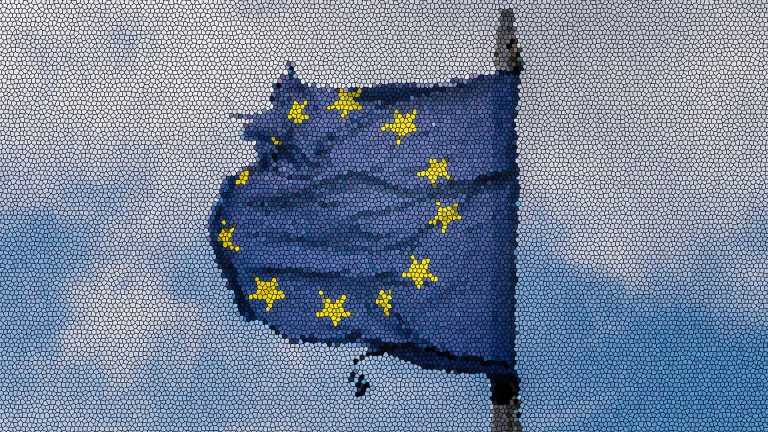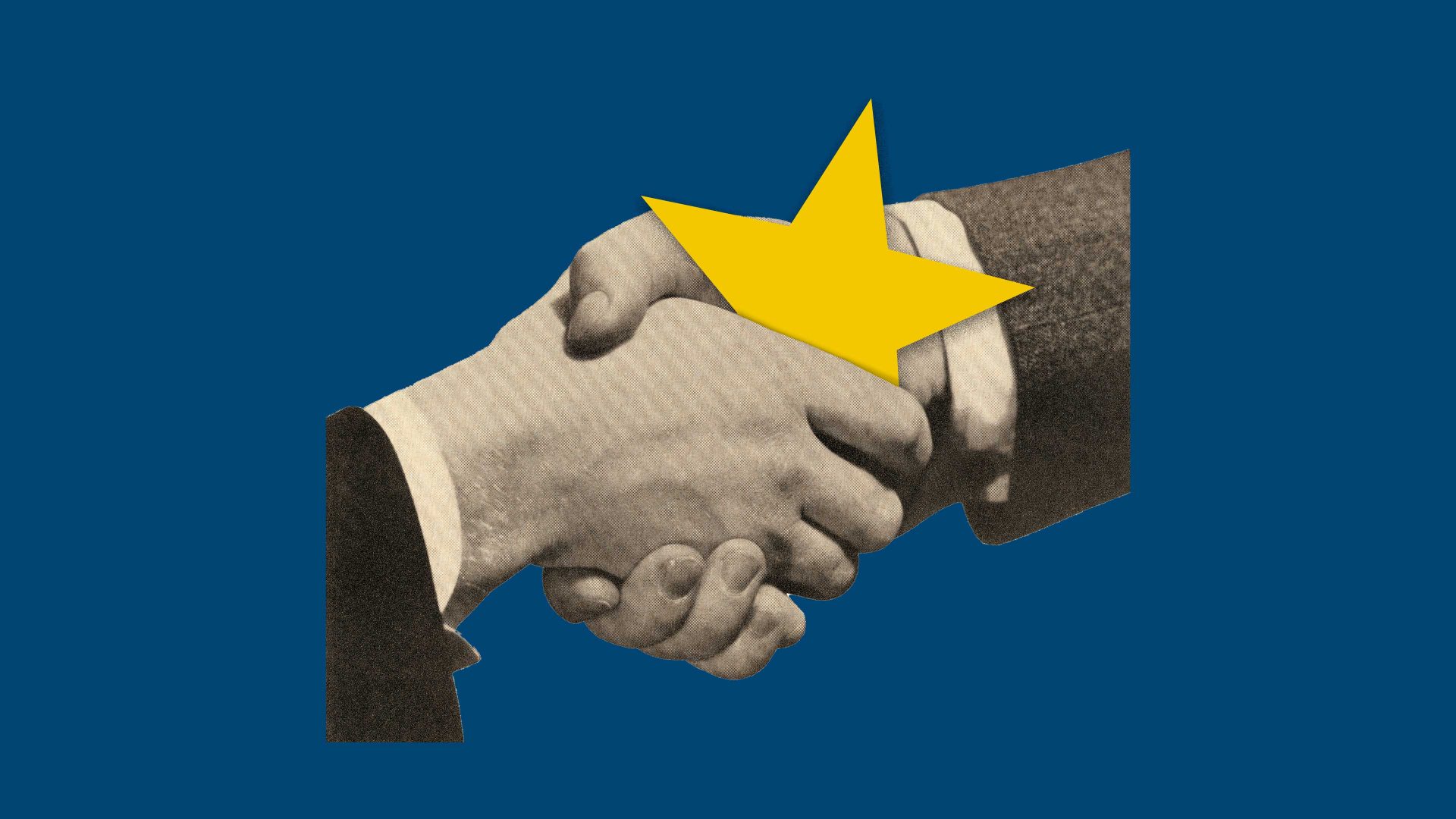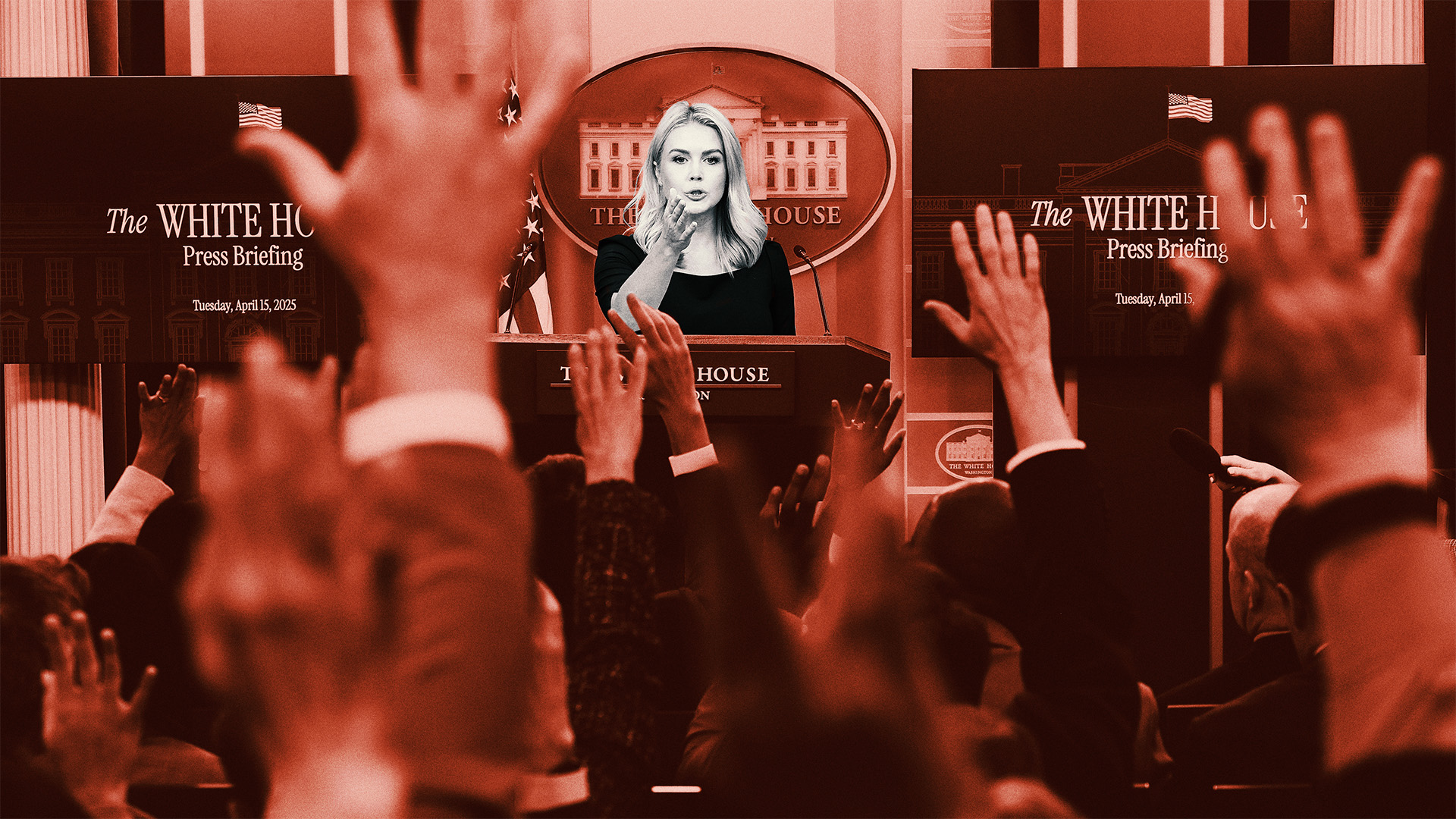The time has come to praise Donald J Trump for what he has achieved as president of the US. Perhaps he does even merit a special Nobel peace prize for his efforts.
He may have indisputably failed in coming close to honouring his pledge to end the wars in Gaza and Ukraine on “day one” of his second term but he has spectacularly succeeded in persuading most of the countries in Europe that it is only by working together that they stand any chance of ensuring their peace and security.
That a collection of seven leaders rushed to join Ukraine’s president Zelensky at the White House for his meeting there was perceived by Trump as a massive compliment. “Never had so many European leaders at one time,” he boasted on social media. “My great honour to host them.”
The EU president, Ursula von der Leyen, was clear that their presence was not merely to pander to the gigantic presidential ego nor to support Zelensky in his determination to stop his country being gifted away by Trump, although that was an apparent risk. “We are here, as allies and friends, for peace in Ukraine and in Europe,” she said.
But even if Trump can be prevailed upon not to completely betray Ukraine, the message that the US cannot be relied upon to provide protection is stark enough: Europe’s safety depends on its unity: one for all and all for one. The images of Trump greeting Vladimir Putin as a great buddy, and of Putin concluding their meeting with the words “next time, in Moscow”, were truly offensive to any believer in democracy.
Trump is delusional in so many ways that when he accuses Ukraine of effectively starting the war, it is almost possible to think he believes it. To von der Leyen and her colleagues, however, the truth is horribly clear: Russia is definitively the enemy and it will probably remain so, even after Putin.
The core of the pro-Ukraine coalition, of course, must be the EU and, yes, this only underlines how crazy it was for the UK to take the unilateral decision to withdraw from that alliance. As a significant bloc, the EU has the clout to stand up to the superpowers of the US and China, and the bullying of Russia.
Suggested Reading

Trump has shown Europe that it needs a stronger union
Individually, its members are largely impotent. Even if Starmer’s failure to leap back into the EU continues to cause disappointment, his pivotal role in recent events is evidence of a rapidly warming relationship that, for the purposes of this new coalition, makes the UK very much a key member.
Its agenda should be easy to agree. Firstly, it is the peace to which von der Leyen referred. This must go beyond a recognition that Russia is an enemy rather than a potential ally and it must also include a complete commitment to democratic values. Spelling out both of those messages might just succeed in countering the dangerous populist tendency that is still stalking Europe.
If the Czech Republic should put the billionaire fraudster, Andrej Babis and his right wing ANO party back into power at this autumn’s elections, then the EU coalition might reasonably feel that his lack of support for Ukraine would not make his country a reliable ally. Equally, Babis’s soulmate, Viktor Orbán would not be a comfortable friend were he to continue as prime minister of Hungary after next spring’s elections although, at the moment, his rival, Peter Magyar, is ahead in the polls.
Paying for the resources to underwrite a European peace will be expensive. Trump’s behaviour over Ukraine has brought a realisation that, for decades, defence spending across Europe has been insufficient and that making up for it will be painful. But Europe’s ambitions could go much further.
Take energy, for which Europe has made only precarious provision in the past. It is no longer tenable for a European country to be reliant on Russian oil or gas. Although the EU’s consumption of Russian energy has been considerably reduced, particularly since the war in Ukraine, it is still significant. In the new world that is now dawning, a dependency on undersea pipelines feels hazardous in the extreme.
Alongside energy security, Europe should agree to work towards food security. Not only would it be good for the environment to put an end to all those airmiles that are clocked up by chicken coming in from Thailand and beans travelling from Kenya, but it would also make the region much less vulnerable to disease from the incoming produce, whether it be naturally acquired or added by malign actors.
As a united force, Europe could achieve so much. Divided – well, we know what happens when European countries fall out.
It was the second world war that inspired Winston Churchill to call for a united Europe so that such a disaster would never be repeated. That lesson should never be forgotten.




